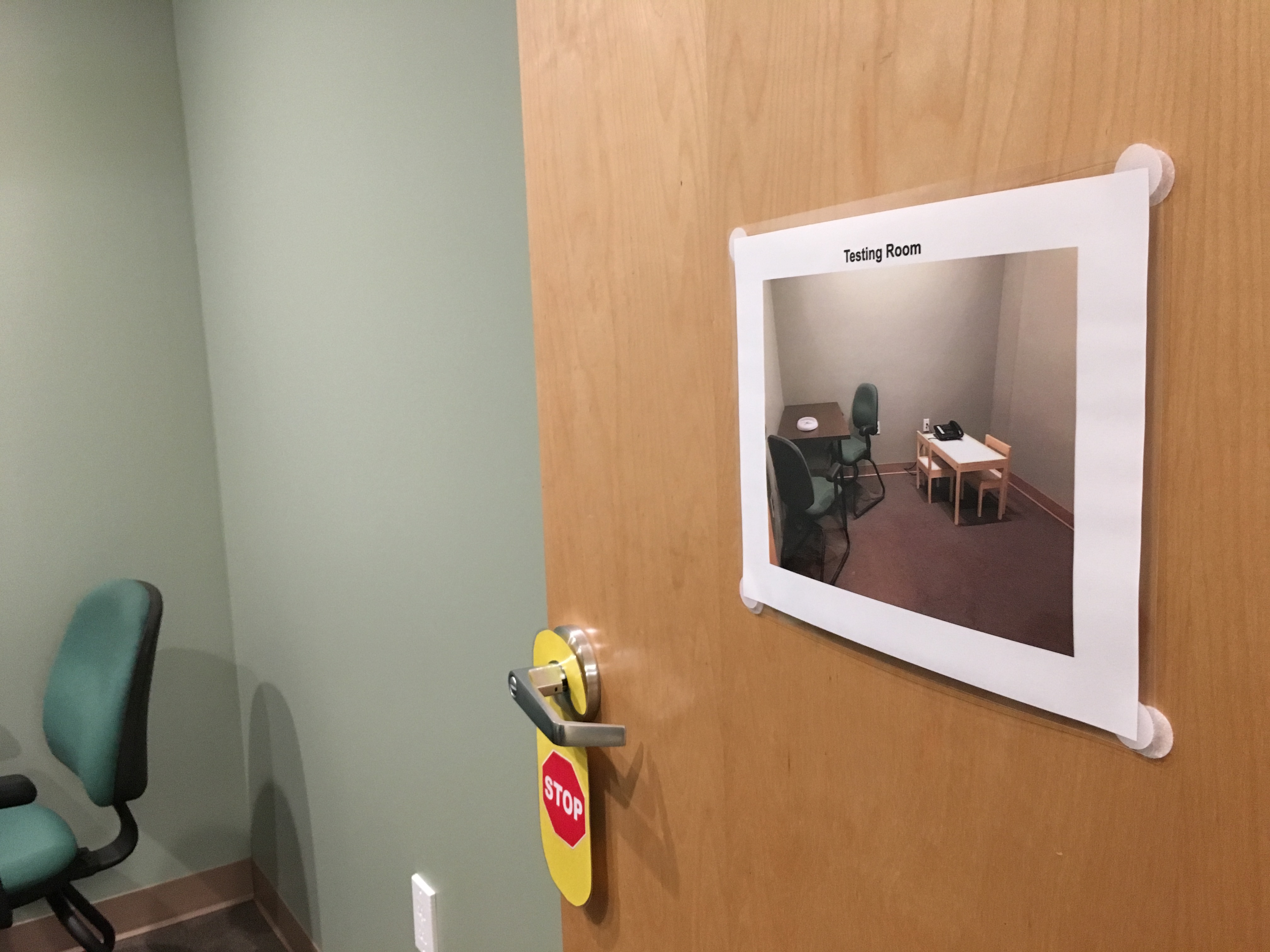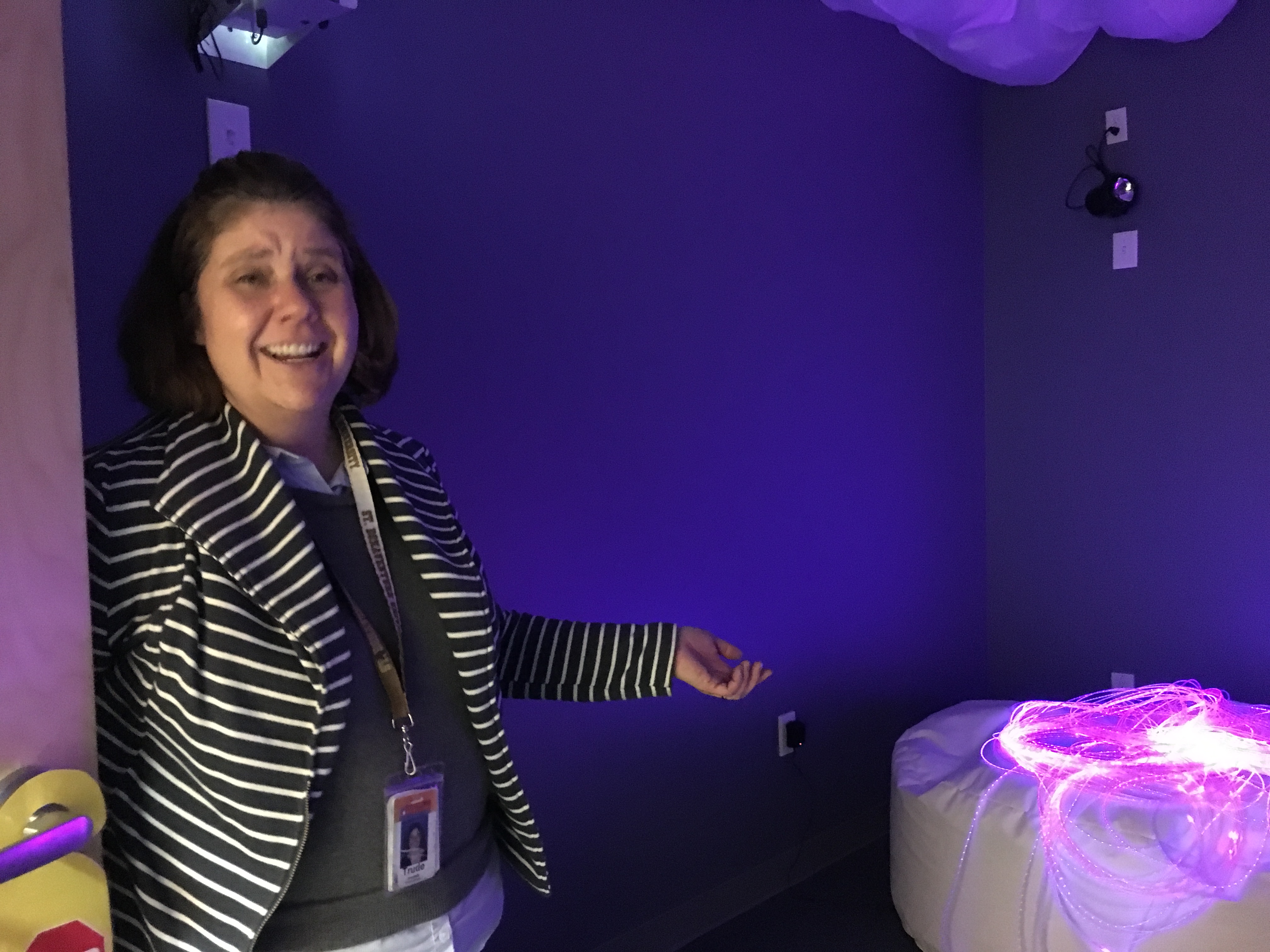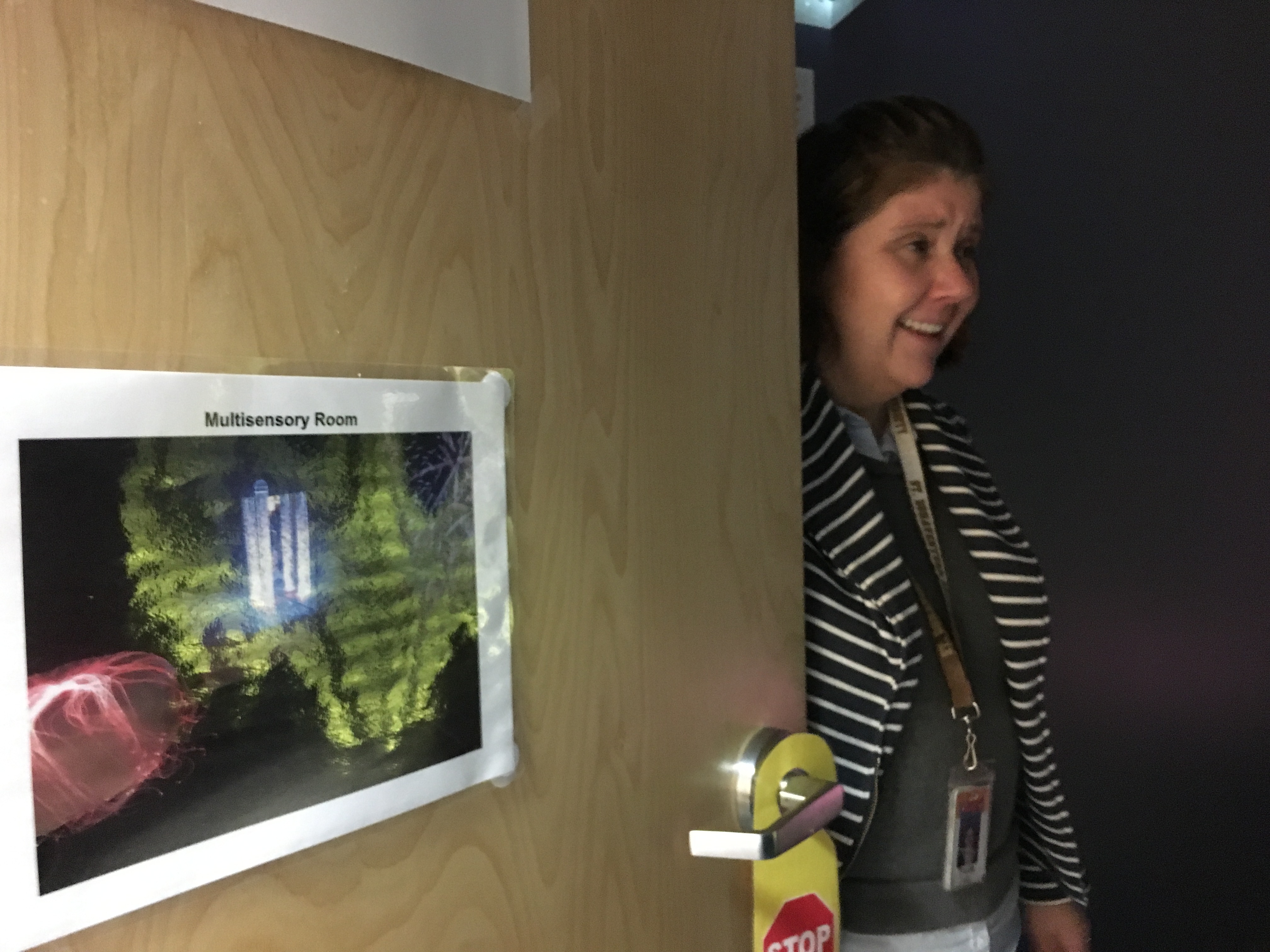Trude Piscitelli and her colleagues figured demand would be high when they opened the Clifford Beers Marne Street Clinic, a center devoted to those with autism spectrum disorder and intellectual or developmental disabilities, as well as atypical neurological issues.
Still, they weren’t expecting the response when Marne Street Clinic opened in Hamden in November 2017. By February, the clinic had approximately 400 families and was getting close to 15 new clients per week. People came from as far away as Danbury, Fairfield County, and New London.
It wasn’t just the numbers that showed the need. Piscitelli, a registered nurse and program manager for Clifford Beers’ psychiatry department, saw it in the way many families approached the clinic.
“When people first call us, we are sometimes on the phone with parents for 45 minutes, an hour,” Piscitelli said. Many had seen other providers and been told, “There’s nothing else I can do for you.” Before scheduling an appointment, they wanted to explain the whole history, to make sure this clinic could really take care of their children – that they could trust it, that it would be worth trying again.
The demand was so intense, Marne Street Clinic changed its front-desk staffing levels from one person to several, including a receptionist who might spend six hours per day on the phone with families.

The front desk at Marne Street Clinic, where receptionists can be on the phone for hours talking to families trying to find the right services for their children with special needs. The waiting area is kept simple to avoid overwhelming clients with sensory issues.
It’s a reflection of the challenges families can face when trying to navigate a fragmented care system for children with needs that are intense and unique. When children are diagnosed with autism spectrum disorder, their families often receive little guidance on what to do next. Those who find services often travel throughout the state to see various care providers – to New Haven for one thing, Hartford for another, Fairfield County for a third.
Marne Street Clinic: All under one roof
Marne Street Clinic is different. Families can receive many services in one place: Testing for autism or other issues. Individual and family therapy. Social skills groups. Parenting support groups. Support groups for siblings. Nutrition counseling and a special kitchen where kids can learn skills such as cooking or washing dishes. Visits with a pediatrician.
“Particularly for this population, the idea of trying to get as many services under one roof is what really serves them best,” Piscitelli said. “If you have a space that people are comfortable in, they know the routine, they can do more than one thing while they’re here, it benefits the parent, it’s less anxiety to meet some of those health needs for their kids. It’s better for the kid.”
It can also lead to better outcomes, Piscitelli said, because if families can more easily come for care, they are more likely to address issues early, before they become more serious.

The doors at Marne Street Clinic have pictures of the inside of the room so kids know what to expect when they walk in.
Because the clinic provides care to people of all ages, families can become comfortable without having to worry about having to find new providers when their child reaches adulthood.
A central part of Marne Street Clinic’s work is care coordination, which takes a broad view of the factors that influence a family’s well-being. Care coordination can mean making sure a family’s basic needs are met – safe housing, health care coverage, access to food – or making appointments with other providers. It can mean helping families understand the various state agencies that will likely work with their children and navigating the school system.
These features of the clinic grew out of another initiative at Clifford Beers designed to better meet the needs of children and families with complex medical and mental health issues. WrapAround New Haven, as it was known, was designed to provide care management, mental health treatment, and medical support, to address both health care needs and other factors that interfere with families’ well-being. The three-year project found that this model of care decreased depression symptoms, reduced hospital stays and emergency department visits, and saved money.
Meeting the needs of children and families by addressing their lives holistically
Grants from the Connecticut Health Foundation helped both models get off the ground. In 2013, the foundation supported Clifford Beers’ work to develop the WrapAround model, helping the organization earn a $9.7 million federal grant to pilot the program. In 2015, a planning grant from the foundation allowed Clifford Beers to morph the hallmarks of WrapAround New Haven by developing a care model that linked behavioral health, primary care, and specialty services for children with autism spectrum disorder and their families – work that led to Marne Street Clinic. A separate grant is now helping Clifford Beers to identify ways to ensure the care management model featured in WrapAround New Haven is sustainable. It’s a major challenge, because clinics generally don’t get paid for care management.
“Clifford Beers is showing us how to design a health care system that truly meets the needs of children and families by addressing their lives holistically, rather than treating specific conditions in isolation,” said Patricia Baker, president and CEO of the Connecticut Health Foundation. “This kind of care takes into account both medical needs and the other factors in families’ lives and can serve as a model for other parts of the health care system.”
Significant racial and ethnic health disparities exist in the diagnosis of autism spectrum disorders in children. One study found that black children are diagnosed as much as 18 months later than white children – a gap that can have significant consequences, since early intervention can make a major difference.
“When we first started thinking about building a place with comprehensive services for folks with autism and intellectual/developmental disabilities, we looked around and found there wasn’t much available,” said Dr. Alice M. Forrester, CEO of Clifford Beers. “That seemed to be the case even for those who didn’t struggle with health care access. So it’s not hard to imagine how important Marne Street Clinic is for those who do not have great access to care, and they tell us that every day.”
Success looks different for each family
Success is defined differently for each family. “I just want my kid to be able to have dinner at the table with us,” a family might say. Reaching the goal might involve a nutritionist and behavioral work for the parents to help build skills so their child can eat at the table.
Another family might struggle with a child punching his mom every day on the way to school. At the clinic, they work to figure out why he’s doing it and how to get him to stop.

The room contains a variety of items, including a sound machine, bubble machine, and special lights, that can be used to help clients focus or transition between activities.
Problems in school are the most common issues that bring families to the clinic. In some cases, parents frequently have to bring their children home from school, leading them to miss work.
While autism spectrum disorder can be diagnosed as early as 18 months, many children are diagnosed later. Some are only diagnosed after they begin school and struggle there, developing problems that might be misunderstood as behavioral issues.
“We diagnose a lot of people with autism at six, seven, eight years old, because it went unnoticed or unchecked for a while. But then all of a sudden, with all these different rules and things, they’re having all these behavioral issues. They’re winding up in ERs, they’re winding up with suspensions at six,” Piscitelli said.
For some young people with autism spectrum disorder, adolescence can present another set of challenges as they face the prospect of romantic relationships and the challenges of fitting in in middle school.
One of the autism program’s earliest clients was a 17-year-old who had struggled socially for as long as he could remember. An evaluation – which included a thorough interview about his history, a review of his records, and testing – determined that he met the criteria for autism spectrum disorder. He and his mother told the clinic they were relieved: After all these years, they finally understood both his challenges and strengths.
The clinic is now piloting services for adults with autism spectrum disorder.
There is no cure for autism spectrum disorder. The goal at Marne Street Clinic is to improve clients’ quality of life.
“That’s the holy grail,” said Sheryl S. McNamee, Clifford Beers’ director of public affairs.
